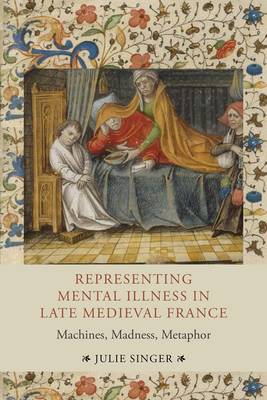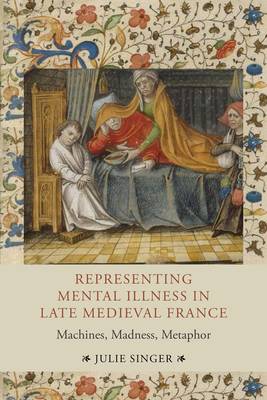
- Retrait gratuit dans votre magasin Club
- 7.000.000 titres dans notre catalogue
- Payer en toute sécurité
- Toujours un magasin près de chez vous
- Retrait gratuit dans votre magasin Club
- 7.000.0000 titres dans notre catalogue
- Payer en toute sécurité
- Toujours un magasin près de chez vous
209,45 €
+ 418 points
Description
An exploration of the medieval mind as a machine, and how it might be affected and immobiled, in textual reactions to the madness of Charles VI of France. At the turn of the fifteenth century it must have seemed to many French people that the world was going mad. King Charles VI suffered his first bout of mental illness in 1392, and he underwent intermittent bouts of frenzy, melancholy and ever-scarcer lucidity until his death in 1422. The king's scarcely mentionable malady was mirrored at every level of social experience, from the irrational civil war through which the body politic tore itself apart, to reports of elevated suicide rates among the common people. In this political environment, where affairs of state were closely linked to the ruler's mental state, French writers sought new ways of representing the psychological dynamics of the body politic. This book explores the innovative mix of organic and inorganic metaphors through which they explored the relationship between mind, body and government at this period; in particular, it considers texts by such authors as Alan Chartier and Charles d'Orléans which describe mental illness and intellectual impairments through the notion of "rust". JULIE SINGER is Associate Professor of French at Washington University, St. Louis.
Spécifications
Parties prenantes
- Auteur(s) :
- Editeur:
Contenu
- Nombre de pages :
- 374
- Langue:
- Anglais
- Collection :
- Tome:
- n° 43
Caractéristiques
- EAN:
- 9781843845126
- Date de parution :
- 19-10-18
- Format:
- Livre relié
- Format numérique:
- Genaaid
- Dimensions :
- 156 mm x 234 mm
- Poids :
- 703 g

Les avis
Nous publions uniquement les avis qui respectent les conditions requises. Consultez nos conditions pour les avis.






